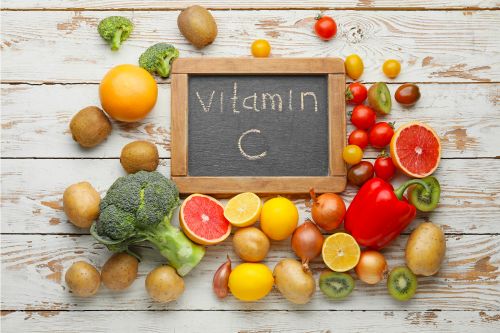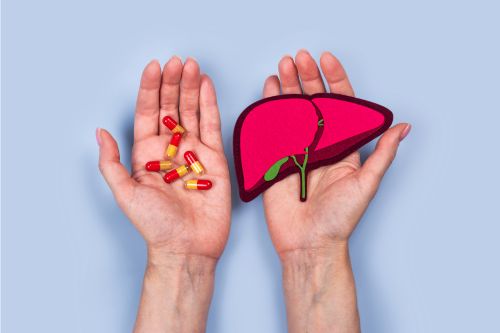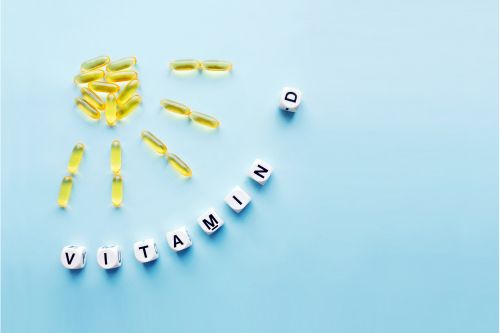3 Min Read
Is Fat Really Bad For You?

Fats have earned a terrible reputation over the past few decades. Low-fat diets were recommended as part of a healthy lifestyle, disregarding the notion that not all fat is the same. Food companies used this message to profit and designed products that were “low-fat” and/or “fat-free”. In this process, fat is removed but replaced with undesirable alternatives such as refined sugars, artificial sweeteners and/or chemical substitutes. Our bodies digest these carbohydrates quickly which affect blood sugar and insulin regulation leading to weight gain and other diseases. My goal for this article is to clarify the importance of fat in our diets and to explain the different types of fat that exist – both good and bad.
We are thankfully moving away from low-fat diets and fat-free everything! Research is now promoting a healthy amount of fat in one’s diet. The truth is, we cannot survive without fat – so many bodily processes require it. Brain cells, immune cells, nerve cells, skin cells are all comprised of fat, which makes it an integral part of our bodies. It is needed for energy, hormone production, fertility, brain function and immunity. Fats in the diet are a concentrated source of energy that fuel muscles and thermal insulation. Fats also increase the feeling of satiety after a meal and improve absorption of fat-soluble nutrients (Vitamins A, D, E, K).
It is important to differentiate between good and bad fats, as not all fats have the same aforementioned positive effects on our bodies. Good fats, as mentioned earlier are essential for optimal functioning, whereas bad fats, also known as trans fats are quite damaging to health. It is important to understand the different types of dietary fats so as to make the best lifestyle and dietary choices.
Understanding The 4 Different Types of Fats:
1. Saturated Fats (SFA)
- Found in animal based products (butter, cheese, fatty meats, dairy products) and tropical plant based products (coconut oil)
- It is best to limit consumption of animal based saturated fats as this can increase the risk of cardiovascular diseases
- Saturated plant based fats may benefit health
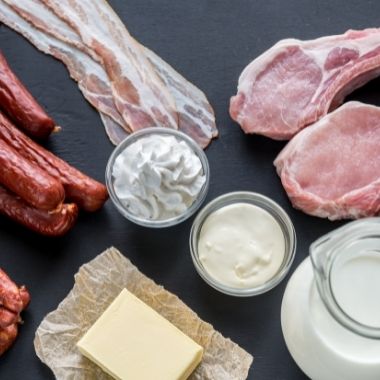
2. Monounsaturated Fats (MUFA)
- These are your Omega-9's
- Found in avocados, some nuts and olive oil
- Best consumed in raw forms
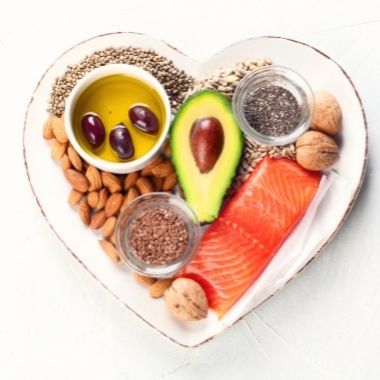
3. Polyunsaturated fats (PUFA)
- These are your Omega-3’sand Omega-6’s
-
Omega-3’s are the most beneficial to health and most essential in our diet.
- Examples: flax oil, fish oil, fish liver oil, krill oil and algae
- Omega-3's are used for decreasing inflammation, reducing heart disease risk, regulating blood pressure and helping with brain development
- Omega-6's are used for various skin conditions, infections, wound healing and many more
- Omega-6’s examples: Safflower oil, evening primrose oil, sunflower oil, hempseed oil, corn oil
- It is not difficult to obtain omega-6 in the diet. Many people acquire a 1:30 ratio of omega3:omega6, when a 1:3 ratio is ideal

4. Trans fats
- These are the bad fats!
-
Most are man made and chemically altered through adding hydrogen atoms to vegetable fats in aim to make them shelf stable
- Examples include: margarines, fried foods and processed baked goods like cookies and cakes
- These confer no health benefits and are actually quite harmful to the body

So what is the moral of the story? Do not adopt a low-fat diet, instead focus on eating the good fats that are used for numerous processes in the body and avoid the transfats. Make sure you are reading leading labels and watch out for those that say “low-fat” or “fat-free”, as this does NOT equal calorie free. These products are generally loaded with refined sugars. Fat-free products can actually disrupt normal hormonal processes occurring in your body. Below I have listed some general dietary guidelines to follow when it comes to getting fat into your diet!
General Guidelines For Fat Intake:
- Avoid products that say “hydrogenated” or “partially hydrogenated fats”
- Chose raw butter or whole dairy products vs. low-fat or fat-free products
- Aim for quality, organic, whole food sources of fats (Omega-3’s)
- The best sources of fat include:Avocados (30 g of healthy fats + fiber + potassium)
- Nuts/seeds (fats + protein + minerals) – Opt for raw, unsalted nuts. Buying in bulk is extremely cost effective
- Healthy oils – 2-3 tbsp per serving, just be cautious of refined oils
- If you are finding it hard to increase healthy fats in your diet, do not be afraid to supplement with a good quality fish oil
Written By: Dr. Saira Kassam | 2017
